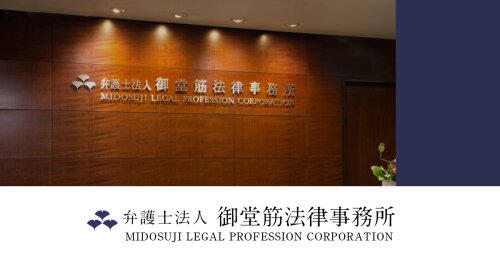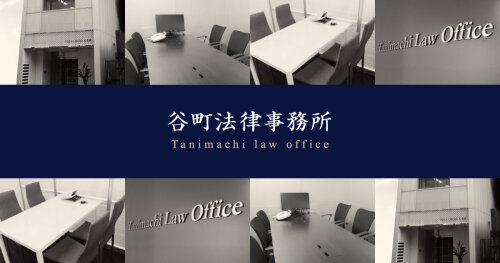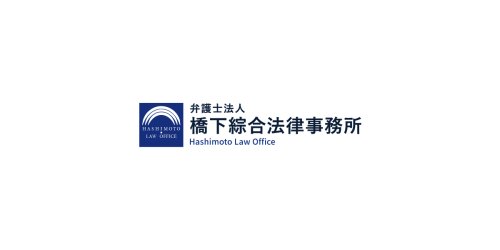Best Wrongful Termination Lawyers in Osaka
Share your needs with us, get contacted by law firms.
Free. Takes 2 min.
List of the best lawyers in Osaka, Japan
About Wrongful Termination Law in Osaka, Japan
Wrongful termination refers to the unlawful dismissal of an employee by an employer. In Osaka, as in the rest of Japan, strict labor laws protect employees from being fired without just cause or appropriate procedure. Japanese employment law emphasizes job security for workers, which means employers must have legitimate grounds for dismissal and must adhere to clearly defined procedures. Wrongful termination cases often revolve around whether an employer's actions were justified and if all legal protocols were followed.
Why You May Need a Lawyer
Navigating wrongful termination laws in Osaka can be complex and intimidating, especially for non-experts and foreign employees. Some common scenarios where legal assistance is warranted include:
- You suspect you were dismissed without a valid reason
- You were let go without being given proper notice or severance
- You experienced discrimination or retaliation at work leading to your termination
- Your employer failed to follow the correct legal process for dismissal
- You are unsure about your rights and want to negotiate a fair settlement
A lawyer with knowledge of wrongful termination law in Osaka can help clarify your rights, represent you in negotiations, and support you in legal procedures such as filing complaints or lawsuits.
Local Laws Overview
Japanese labor law, largely set out in the Labor Standards Act, applies throughout Osaka. This law provides significant protection for employees facing dismissal. Key points include:
- Dismissals must be for objectively reasonable grounds such as serious misconduct, significant poor performance, or unavoidable business necessity
- Termination procedures require advance notice (generally 30 days) or payment in lieu of notice
- Employers cannot dismiss an employee during certain protected periods, such as maternity leave or while on sick leave due to work-related injuries
- Discriminatory dismissals based on gender, nationality, religion, or other protected characteristics are prohibited
- If a dismissal is contested, labor tribunals or courts in Osaka may order reinstatement or compensation if the employer's actions are found unlawful
Many companies in Osaka also have internal rules and procedures regarding termination, which must comply with national law but may offer additional protections.
Frequently Asked Questions
What is considered wrongful termination in Osaka, Japan?
Wrongful termination occurs when an employer fires an employee without legal justification or fails to follow proper procedures as outlined by Japanese labor law.
Can I be dismissed without notice?
Employers are generally required to provide at least 30 days' notice or pay 30 days' worth of wages in lieu of notice, unless the dismissal is due to serious misconduct.
What are valid reasons for dismissal?
Acceptable reasons include severe misconduct, repeated poor performance, or compelling business-related needs such as company restructuring. The employer must provide proof of these reasons.
What should I do if I think I was wrongfully terminated?
You should consult with a labor lawyer or visit your local Labor Standards Inspection Office to discuss your case and determine if you should pursue legal action.
Are there deadlines for filing a complaint?
Yes, labor-related claims must typically be filed within two years of the alleged wrongful termination. However, prompt action is recommended.
Can I get my job back if I win a wrongful termination case?
Japanese labor courts have the authority to reinstate you to your former position or order monetary compensation, depending on the specifics of your case.
Are foreigners protected by wrongful termination laws in Osaka?
Yes, all employees in Japan, regardless of nationality, are protected by the same labor laws provided they have an employment contract recognized under Japanese law.
Does my employer have to explain the reason for my dismissal?
Yes, upon request, employers must provide a written statement detailing the reason for your dismissal.
Can I be dismissed for disagreeing with my boss?
Simply disagreeing with a supervisor is not grounds for dismissal. For a dismissal to be valid, it must meet legally recognized justifications.
Where can I seek help if I cannot afford a lawyer?
There are public organizations in Osaka, such as labor consultation offices, that provide free or low-cost legal consultations for people facing wrongful termination.
Additional Resources
- Osaka Labor Standards Inspection Office - Provides guidance on labor laws and handles worker complaints
- Japan Legal Support Center (Houterasu) - Offers free or low-cost legal consultations for those in need
- NPO Labor Consultation Centers in Osaka - Non-profit advocacy and consultation
- Osaka Bar Association - Can help you find a local lawyer who specializes in employment law
- Ministry of Health, Labour and Welfare - Official information on labor standards and workplace rights
Next Steps
If you believe you have been wrongfully terminated in Osaka, take the following steps:
- Gather relevant documents such as your employment contract, termination notice, payslips, and any communications related to your dismissal
- Contact the nearest Labor Standards Inspection Office or a labor lawyer for an initial consultation
- Understand your rights and legal options as explained by the legal professional
- Consider formal dispute resolution through consultation, negotiation, or, if necessary, legal action at labor tribunals or courts
- Keep records of all interactions and steps taken during the process
Remember, prompt action can help protect your interests and increase the likelihood of a favorable outcome if you have experienced wrongful termination in Osaka.
Lawzana helps you find the best lawyers and law firms in Osaka through a curated and pre-screened list of qualified legal professionals. Our platform offers rankings and detailed profiles of attorneys and law firms, allowing you to compare based on practice areas, including Wrongful Termination, experience, and client feedback.
Each profile includes a description of the firm's areas of practice, client reviews, team members and partners, year of establishment, spoken languages, office locations, contact information, social media presence, and any published articles or resources. Most firms on our platform speak English and are experienced in both local and international legal matters.
Get a quote from top-rated law firms in Osaka, Japan — quickly, securely, and without unnecessary hassle.
Disclaimer:
The information provided on this page is for general informational purposes only and does not constitute legal advice. While we strive to ensure the accuracy and relevance of the content, legal information may change over time, and interpretations of the law can vary. You should always consult with a qualified legal professional for advice specific to your situation.
We disclaim all liability for actions taken or not taken based on the content of this page. If you believe any information is incorrect or outdated, please contact us, and we will review and update it where appropriate.














